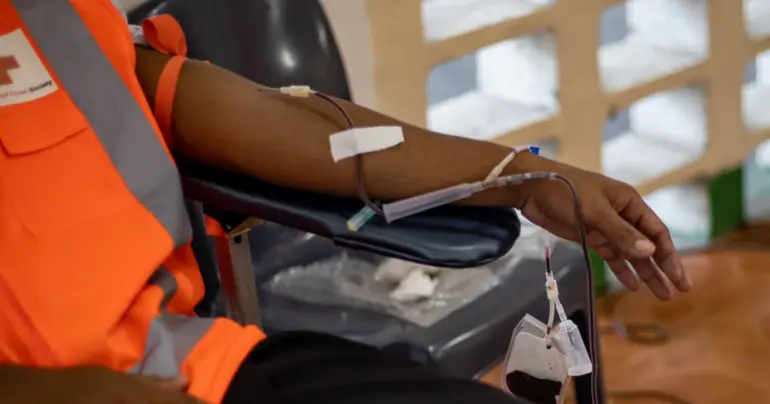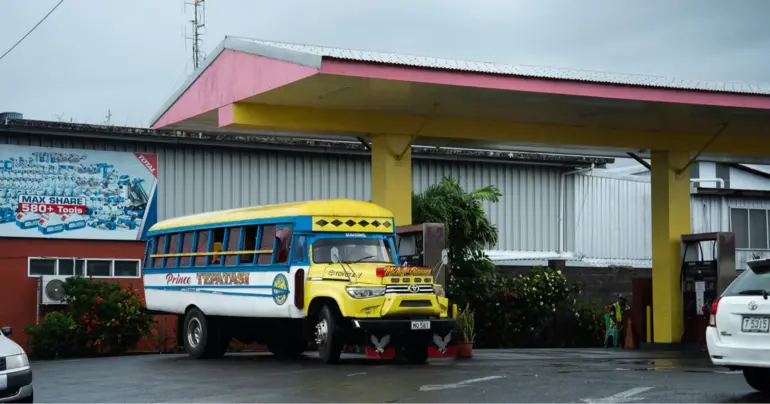Pork imports from swine fever affected countries suspended
 By Soli Wilson
•
30 November 2020, 7:00PM
By Soli Wilson
•
30 November 2020, 7:00PM
Processed pork products from countries with African Swine Fever (A.S.F.) cases are temporarily suspended for importation and sale in the country, the Ministry of Agriculture and Fisheries (M.A.F.) has warned.
The temporary suspension is an effort to keep the highly contagious virus out of Samoa. The Samoan Government has banned the importation of pork products from countries with African Swine Fever (A.S.F.) until further notice.
The Ministry notice comes almost five months after the Ministry had approved the importation of pork products after it had been banned and pulled off the shelves earlier in the year.
Currently, only four brands of pork products are permitted to be sold in stores. They are Deli Pork Luncheon meat, Tasi Pork Luncheon meat, Kings Choice Pork Luncheon, and Uncle Sam Pork Luncheon meat.
“All other brands of canned pork products in Samoa that have not been approved by the Ministry are not allowed to be sold.”
Scrap meat and empty cans of the permitted canned pork products is “strongly advised” to be disposed of properly and not fed to pigs, the notice reads.
The Scientific Research Organisation of Samoa (S.R.O.S) is equipped to examine samples for the African Swine Fever (A.S.F).
According to A.S.F. situation reports, New Zealand and Australia remain free from the highly contagious and deadly virus affecting pigs, and severely damaging the multimillion pork industries across China, Mongolia, Vietnam, Indonesia and Papua New Guinea, as well as within parts of the European Union.
The disease does not affect humans.
“Based on scientific evidence relied upon by the Ministry, the virus that causes A.S.F. in pigs does not affect the health of humans, and therefore the following canned pork products already in Samoa that were approved by the Ministry are safe for consumption,” a statement from the M.A.F. says.
However, the virus is spread by direct contact between pigs which are infected and their bodily fluids or tissues and indirectly from contact with contaminated objects such as vehicles, equipment, footwear, clothing or food.
The only way to limit the spread of the virus is to slaughter infected animals.
Earlier this year in February, an A.S.F. risk assessment mission in Samoa by the United Nations Food and Agriculture Organisation (F.A.O.) was conducted.
The subregional Coordinator for the United Nations F.A.O. to the Pacific, Eriko Hibi, urged Samoan authorities to take stricter biosecurity measures to prevent the disease from entering the country.
Nine countries in Europe, 12 in Asia and four in Africa have reported new or ongoing cases of A.S.F., according to data from the World Organisation for Animal Health based in Paris, France.
The total number of ongoing A.S.F. outbreaks worldwide now stands at 7,823.
According to the Animal Health Information and Analysis Department’s A.S.F. Report between 13 November to 26 November, 208 new outbreaks were notified.
A total of 24 countries or territories have issued notice of new or outgoing outbreaks. In Europe, these countries include: Germany, Hungary, Latvia, Poland, Romania, Russia, Serbia and Ukraine.
Asian countries affected are: The People’s Republic of China, India, Indonesia, South Korea, North Korea, Laos, Myanmar, Philippines, Vietnam, Timor-Leste and Papua New Guinea.
In Africa, affected countries include Namibia, Nigeria, South Africa and Zambia.
For more information on the notice, the public is advised to contact the Ministry’s Quarantine Division (685)20920 or (685)22171.
Tags
 By Soli Wilson
•
30 November 2020, 7:00PM
By Soli Wilson
•
30 November 2020, 7:00PM











